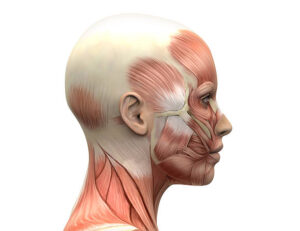
Being physically active has many health benefits, and good nutrition plays an important role in physical activity. There are some special dietary considerations for physical activity and athletics.
Body Weight and Body Fat
Ideal body weight for health or athletic performance varies from person to person.
Age, gender, level of physical activity, and family history all affect body weight. The importance of body weight goes beyond looks and physical performance.
For the general population, body fat levels between 18 percent to 21 percent for young men and 23 percent to 26 percent for young women are recommended. Trained athletes may have less body fat, ranging from 7 percent to 16 percent for men, and 15 percent to 22 percent for women. Body fat below 7 percent for men and 15 percent for women may also increase health risks.
Weight Management
Physical activity plays an important role in weight management. Physical activity increases the number of calories the body uses, although the number of calories used depends on the type, intensity, and duration of the activity. For substantial health benefits, the Physical Activity Guidelines for Americans recommends adults engage at least 150 to 300 minutes of moderate-intensity physical activity a week, or 75 to 150 minutes of vigorous-intensity physical activity, or an equivalent combination of moderate and vigorous-intensity physical activity.
The goal for healthy weight loss is to lose body fat while maintaining lean body mass and muscle. Weight loss should be gradual, 1/2 pound to two pounds per week, for both athletes and non-athletes. Rapid weight loss increases loss of lean body mass and muscle. There also is a higher risk of regaining weight lost rapidly. The best combination for weight loss is a regular fitness program along with a well-balanced diet.
Carbohydrate
Carbohydrates are found in many foods including breads, cereals, grains, fruits, vegetables, and dairy foods. Carbohydrates should supply more than half of the calories consumed daily. A high carbohydrate diet increases muscle glycogen. Muscle glycogen provides an energy reserve for greater endurance and delays fatigue. Increased muscle glycogen is helpful for athletic events lasting longer than 90 minutes. Athletes may use a modified carbohydrate loading plan to increase muscle glycogen. This plan involves reducing workouts the week before an event and complete rest the day before an event. Along with reduced workouts, the athlete begins eating a high carbohydrate diet three days before the event.
Protein
Protein is found in many foods including meat, poultry, fish, eggs, nuts, milk, yogurt, cheese, beans, peas and lentils. The Dietary Reference Intake for protein for healthy adults is 0.8 grams protein per kilogram body weight. Competitive athletes sometimes need one to one and a half grams of protein per kilogram body weight. This higher amount of protein can easily be obtained from a well-balanced diet with a variety of foods.
The increased need for protein does not mean athletes need amino acid or protein supplements. There is no evidence that amino acid or protein supplements increase muscle mass. In fact, excessive amino acid or protein supplements can be harmful. Products from protein breakdown are excreted in the urine increasing water loss and risk of dehydration.
Fat
Carbohydrates and protein provide most of the daily calorie needs. Fat is used for the remaining calories. For good health, the Dietary Reference Intakes (DRI) recommend a diet low in saturated fat and trans fat, and one which provides 20 to 35 percent of the daily calories intake from fat.
Vitamins and Minerals
Vitamins and minerals have important roles in carbohydrate, protein, and fat metabolism. Without vitamins and minerals there would be no muscle function. Physical activity increases the need for some vitamins and minerals. A well-balanced diet will supply enough vitamins and minerals to cover any increased need due to activity. There is no evidence that athletes need extra vitamins and minerals if they consume a well-balanced diet. There is also no evidence that vitamin and mineral supplements improve athletic performance.
Iron
Iron is a mineral that is very important for both physically active women and young athletes. Iron is part of hemoglobin, the protein that carries oxygen from the lungs to the muscles.
iron deficiency can lead to fatigue and hinder athletic performance.
However, iron from plant foods is not as easily absorbed as iron from animal sources by the body. Increase the absorption of iron from plant foods by eating them in combination with animal sources or foods rich in vitamin C, such as orange or tomato juice.
Calcium
Calcium is also a mineral that is very important for physically active women and young athletes. Low body fat levels and high physical activity may hinder bone development in young female athletes. Adolescence and early adulthood is a time when maximum bone formation occurs. Decreased bone development can increase the risk of stress fractures and hurt athletic performance. It is important that all athletes, especially young female athletes, consume adequate dairy products such as milk, yogurt, and cheese for calcium. Calcium is also found in dark-green leafy vegetables, fortified breads and cereals, and calcium fortified orange juice.
Fluids
Physical activity results in increased heat production in the body. The main way the body removes heat is by sweating. Water loss from sweating can decrease muscle strength, endurance, coordination, and increase risk of cramps. Excessive body water loss can result in heat exhaustion and heat stroke, which can lead to death.
Replacing water lost by sweating is the best way to prevent dehydration. Thirst is not a good indicator of water need. Weighing before and after physical activity is an easy way to determine the amount of body water lost through sweat. It requires one pint (2 cups) of fluid to replace each pound of body water lost in physical activity.
Guidelines for fluid intake before athletic events include drinking extra water for several days before an event in order to start the event well hydrated. Guidelines for fluid intake during athletic events are two cups to three cups of fluid, two hours to three hours before the event; and one to two additional cups of fluid, 15 to 20 minutes before the event. Small (1/2 cup) servings of plain cool water should be consumed frequently throughout the event.
For most individuals exercising less than one hour, cool water is the best way to replace fluids. The typical American diet provides enough sodium and other minerals to replace those lost through sweat. Sports drinks may be useful when exercising over one hour or in high temperature or humidity conditions. The body easily absorbs sports drinks containing six to eight percent glucose or sucrose with a small amount of sodium. These drinks help maintain blood glucose, without causing stomach cramps. Concentrated sports drinks, or sports drinks containing fructose, may cause stomach cramps.
Summary
Nutrition is an important factor affecting fitness and athletic performance. Whether one participates in physical activity for personal fitness or for competition, the best nutritional recommendations are to consume adequate fluids and a well-balanced diet from a variety of foods
………….Adelekan Oluwaseun Ojo, is a counseling psychologist, and a business & health consultant with Jigsimur Zdex Int’l, a company which is into the production and distribution of Jigsimur herbal health drink, a natural curative and preventive herbal medicine from South Africa.
For personal consultation, you can contact us on 07089225319 or 08035122399








